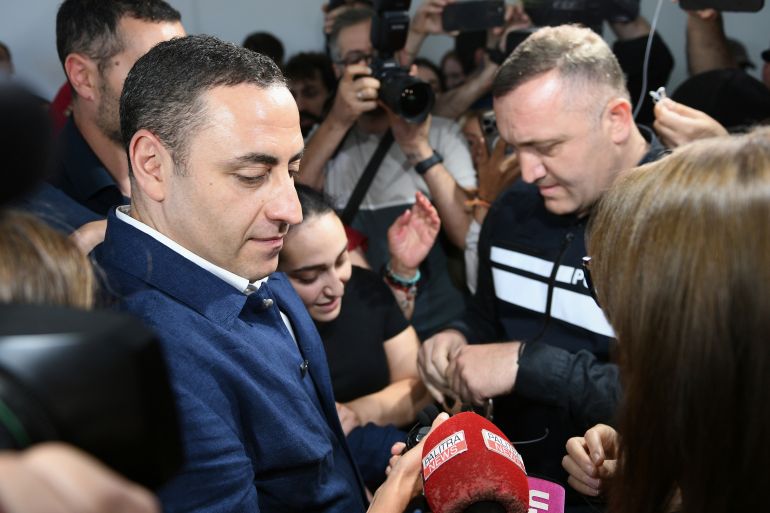A court in Georgia has sentenced prominent opposition figure Nika Gvaramia to eight months in prison, amid a deepening crackdown on critics of the ruling Georgian Dream party.
Gvaramia, the co-leader of the opposition Akhali party, was also barred from holding office for two years.
The court imposed the sentence on Tuesday over his refusal to cooperate with a parliamentary commission tasked with investigating alleged wrongdoing under ex-President Mikheil Saakashvili, a pro-Western reformer currently serving a 12-and-a-half-year prison term.
Several other leading opponents of Georgian Dream have been jailed on similar charges to Gvaramia, including Giorgi Vashadze, a former deputy justice minister, who received a seven-month prison sentence last week.
The crackdown has led to growing accusations against the governing party that it is trampling on democracy amid continuing protests in the wake of last year’s disputed elections.
Speaking to the AFP news agency on Tuesday, Gvaramia’s lawyer Dito Sadzaglishvili said the verdict against his client was “unlawful” and “part of the government’s attempt to crush all dissent in Georgia”.
Growing criticism
The British government on Monday denounced the crackdown on opposition figures and summoned the country’s charge d’affaires.
“The imprisonment of prominent opposition leaders is the latest attempt by the Georgian government to crack down on freedoms and stifle dissent,” the United Kingdom’s Foreign Office said.
“The UK Government will not hesitate to consider further action should Georgia not return to respecting and upholding democracy, freedoms and human rights,” it added.
The NGO Amnesty International also criticised the government, saying last week in reaction to Vashadze’s sentencing that it had “serious concerns over the misuse of legislative, policing and other powers to silence government critics in Georgia”.
The human rights organisation specifically took aim at the parliamentary commission linked to the arrests of opposition figures.
“With its status disputed, the commission has been instrumentalised to target former public officials for their principled opposition,” said Denis Krivosheev, Amnesty’s deputy director for Eastern Europe and Central Asia.
After Georgian Dream claimed victory in a contested election in October, the European Union candidate nation experienced mass protests.
Critics accuse the government of undermining democracy and of bringing the country close to Moscow, allegations the governing party denies.
The EU has said some 80 percent of the population supports Georgia’s bid to join the bloc, a commitment enshrined in its constitution.
Source: Aljazeera

Leave a Reply